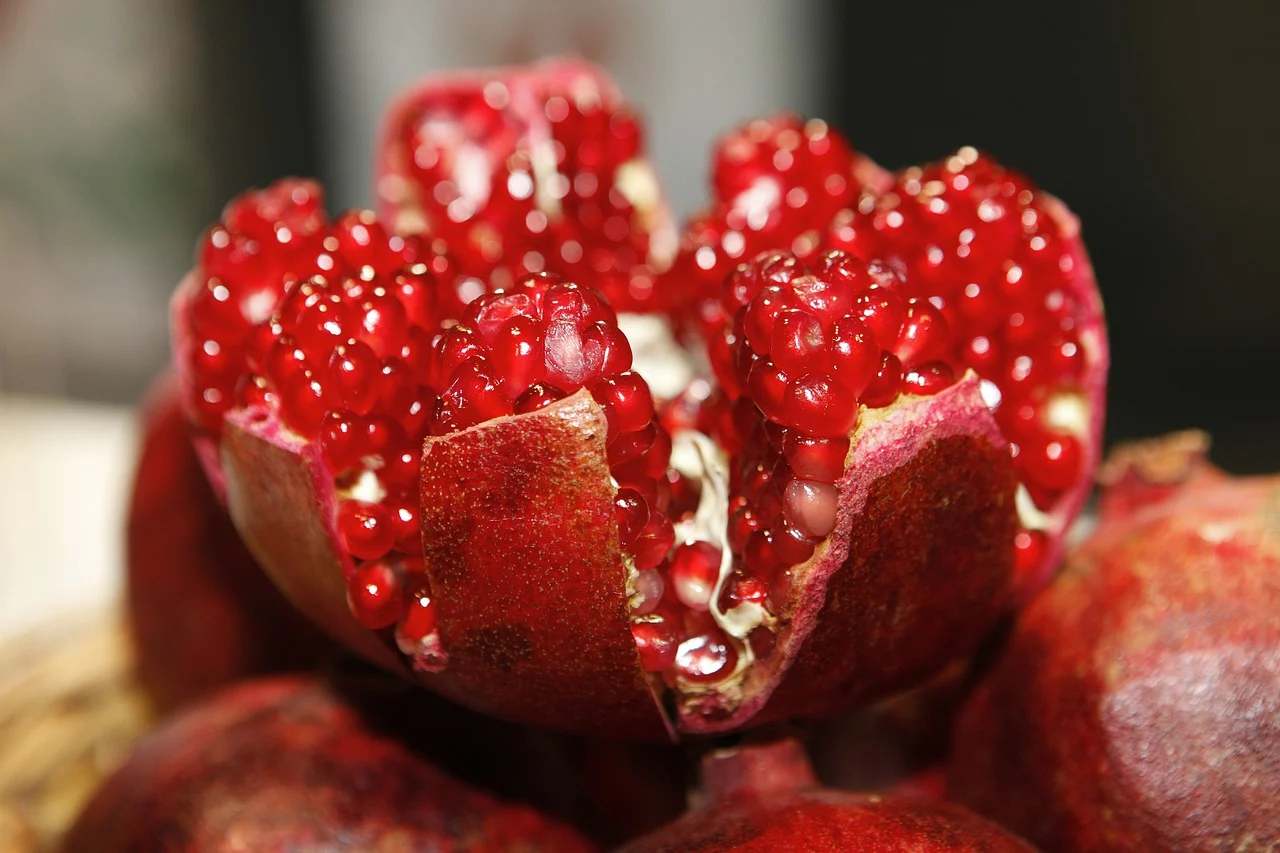Cognitive decline affects a lot of people. Certain daily habits can reduce the risk of diseases such as dementia. You have to be very careful about what goes in the shopping cart and on the plate. Whole foods versus ultra-processed ones improve brain health outcomes. Snacks and drinks, which are ultra-processed foods, contain a lot of sodium, added sugar and saturated fat. They are the real culprits of cognitive decline. According to a study published in July 2022 in Neurology, replacing just 10% of ultra-processed foods with unprocessed foods reduces the risk of dementia by 19%.
Is pomegranate good for the brain?
Research published in July 2022 in the Journal of Alzheimer’s Disease found that pelargonidine, found in pomegranate, allows for better transport of nutrients from one part of the brain’s nerve cells to another. Pomegranate pelargonidin is an anthocyanidin. Like all anthocyanins it is an antioxidant. This substance, with an orange color, is found as we said in the pomegranate. Red geraniums, raspberries, and ripe strawberries are also a good source. A good amount is also found in blueberries, blackberries and plums. Pomegranate is good for the brain. Some phytonutrients, particularly the ellagitannins found in pomegranate, can reduce oxidative stress and inflammation. This is why pomegranate promotes brain health during aging.
What Food Helps the Brain?
You need to eat unrefined whole grains. In particular, bread, pasta, barley, rice, oats, spelled and millet have a low glycemic index. This is why they slowly release glucose into the blood. This helps keep the mind active and focused throughout the day. In particular, wholemeal pasta protects our brain and helps it stay young. Foods such as chocolate and chilli have negative effects on the brain. These can trigger headaches. Coffee, on the other hand, can be a valid ally against migraines.
Do pumpkin seeds help the brain?
Pumpkin seeds are rich in zinc. Zinc is a precious mineral which, according to scientific research, improves memory and thinking skills. These seeds are also rich in magnesium. This substance is an anti-stress mineral. They also contain B vitamins and tryptophan. The latter substance is the precursor of serotonin, the neurotransmitter of good mood.
What does pomegranate contain?
Pomegranate is one of the best fruits that offers many health benefits. In detail, the pomegranate contains:
- Water (77.93%)
- Protein (1.67%)
- Lipids (1.17%)
- Saturated Acids (0.12%)
- Monounsaturated acids (0.09%)
- Polyunsaturated Acids (0.08%)
- Carbohydrates (18.7%)
- of which soluble sugars (13.67%)
- Fiber (4.0%)
